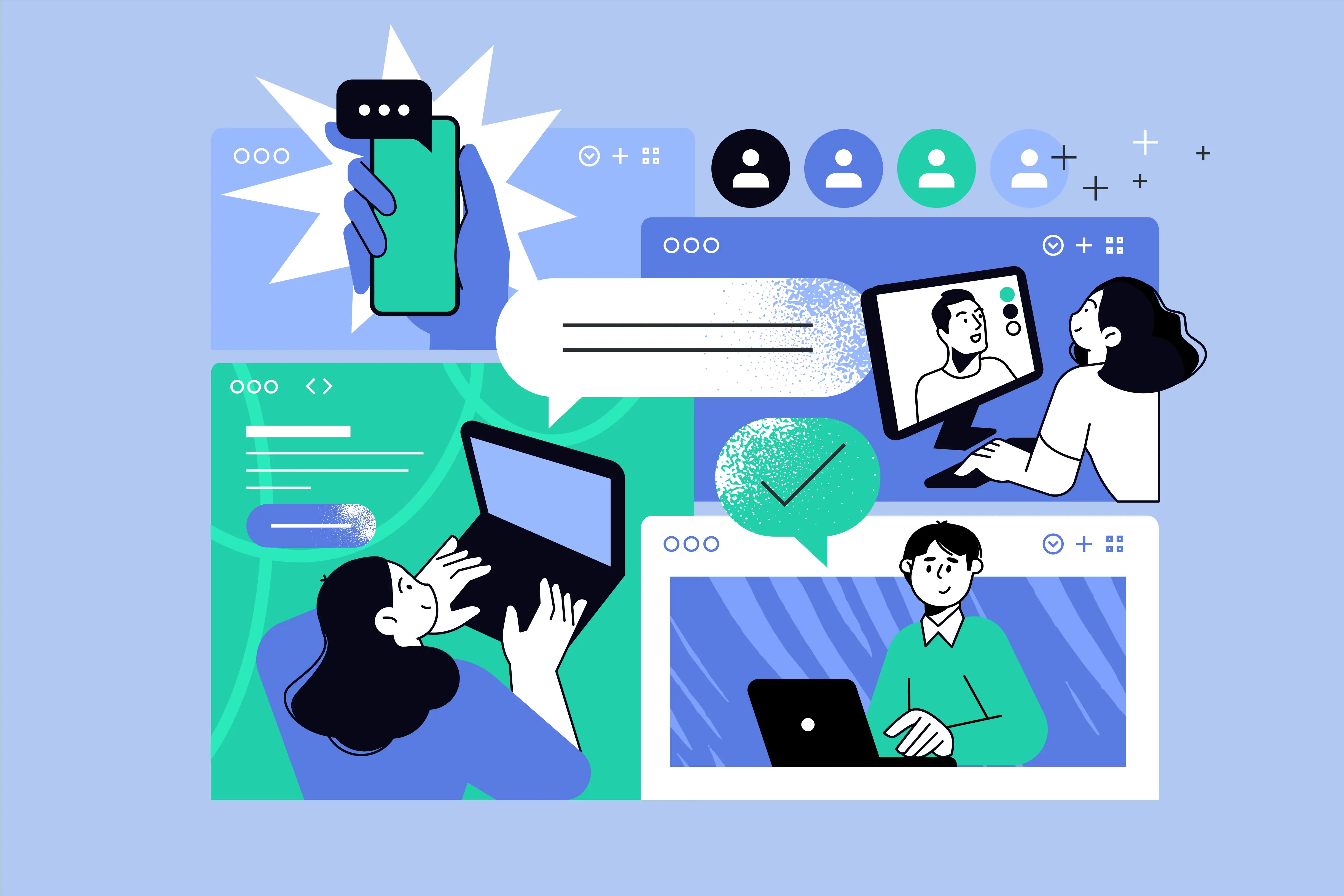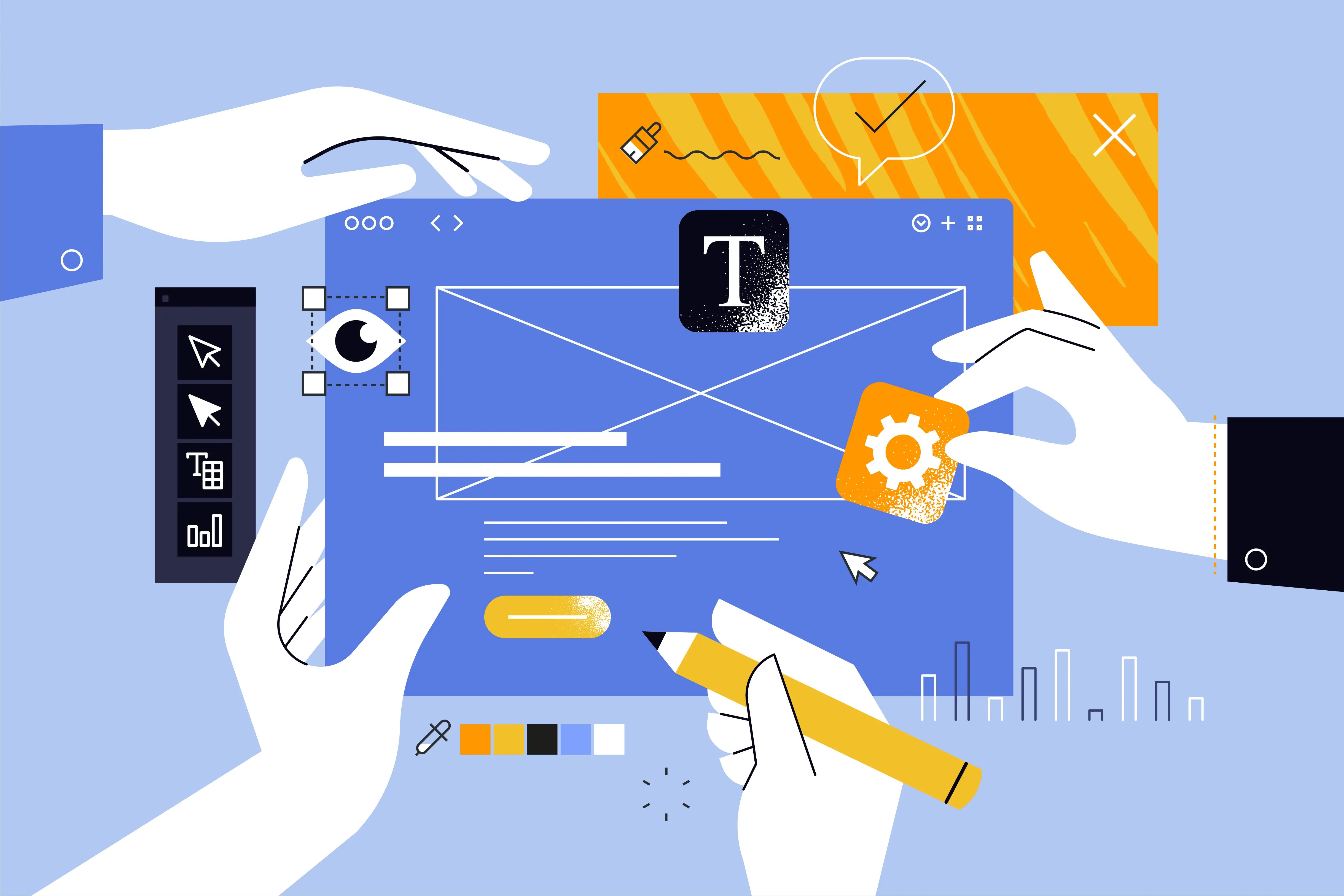Voice AI vs. Chatbots in Healthcare: Why Agentic AI Voice Agents Are the Future of Medical Communication
Discover the critical differences between traditional chatbots and advanced AI voice agents for healthcare. Learn why agentic, proactive voice AI delivers superior patient engagement and operational efficiency.
Sitech Lim
Founder & CEO

Voice AI vs. Chatbots in Healthcare: Why Agentic AI Voice Agents Are the Future of Medical Communication
In the rapidly evolving and often confusing landscape of artificial intelligence, the terms "chatbot" and "AI voice agent" are frequently, and erroneously, used interchangeably. This pervasive imprecision creates significant confusion and presents a substantial challenge for healthcare decision-makers who are seeking to make informed investments in technology capable of genuinely transforming their operational efficiency and patient engagement strategies. While both technologies fall under the broad umbrella of healthcare conversational AI, they fundamentally represent vastly different levels of capability, sophistication, and strategic utility for modern healthcare organizations.
A clear and nuanced understanding of this critical distinction is absolutely crucial for selecting a solution that can effectively meet the complex, highly nuanced, and often high-stakes demands of modern healthcare delivery. The voice AI vs chatbots healthcare communication debate extends far beyond simple preference—it represents a fundamental choice between tactical automation and strategic transformation.
This comprehensive article aims to meticulously clarify the ongoing AI voice agent vs chatbot debate, dissecting their core functionalities, limitations, and strengths. Furthermore, it will elucidate why AlloMia's sophisticated, proactive, and uniquely "agentic" approach to AI voice technology for healthcare is not merely an incremental improvement, but rather the definitive future of healthcare communication and operational automation.
Key Takeaways:
- Chatbots are Scripted: Traditional chatbots are typically text-based and follow rigid, predefined rules, making them suitable for simple FAQs but limited for complex healthcare interactions.
- Voice AI is Dynamic: Generative AI voice agents use Large Language Models (LLMs) to understand context, manage nuanced conversations, and generate novel, human-like responses that adapt to patient needs.
- The Agentic Difference: AlloMia's agentic AI healthcare platforms are task-driven problem solvers that can proactively initiate calls and automate complex healthcare workflow automation across multiple systems.
- Strategic vs. Tactical: Chatbots are tactical tools for simple information retrieval, while agentic AI voice agents represent a strategic investment for deep operational automation and patient engagement.
The Traditional Chatbot: A Digital FAQ System with Inherent Healthcare Limitations
To understand the revolutionary leap represented by AI voice agents for healthcare, it's essential to first clearly define and understand the capabilities and, more importantly, the inherent limitations of a traditional chatbot within the healthcare context. Conceptually, a traditional chatbot can be best understood as a sophisticated digital FAQ system with specific characteristics that limit its effectiveness in healthcare settings:
Text-Based Interaction Limitations
Traditional healthcare chatbots engage with users predominantly through a text-based interface, typically within a chat window embedded on a website, a mobile application, or a messaging platform. This fundamental limitation creates several challenges in healthcare:
- Accessibility barriers for elderly patients, those with visual impairments, or patients experiencing medical distress
- Language complexity when dealing with medical terminology or emotional patient situations
- Limited emotional intelligence in text-based interactions during sensitive healthcare conversations
- Reduced engagement compared to natural voice-based communication that patients expect in healthcare settings
Rigidly Rule-Based Healthcare Interactions
The operational logic of a traditional chatbot is fundamentally rooted in predefined decision trees, rigid rules, or meticulously crafted scripts. While this design allows them to excel at efficiently answering a high volume of common, straightforward questions with pre-programmed responses, their utility in healthcare is strictly confined to these predetermined pathways.¹ Key limitations include:
- Inability to handle complex medical inquiries that require contextual understanding
- Failure to adapt to patient emotional states or urgent medical concerns
- Limited problem-solving capability for appointment scheduling conflicts or insurance complications
- Frustrating patient experiences when conversations deviate from scripted pathways
Contextual Understanding Deficits in Healthcare
A significant drawback of traditional chatbots in healthcare settings is their struggle with multi-turn conversations and contextual awareness. They often lack the sophisticated memory and contextual understanding required to:
- Retain patient information from previous interactions within the same dialogue
- Understand medical history context that influences current healthcare needs
- Maintain conversation continuity during complex scheduling or medical inquiry processes
- Provide personalized responses based on patient-specific healthcare situations
When a patient's question falls outside their narrow, predefined script, chatbots are easily stumped, leading to frustrating dead-ends that can compromise patient care and satisfaction.
The Rise of AI Voice Agents: Expert Healthcare Problem-Solvers and Strategic Assets
In stark contrast to the limitations of traditional chatbots, an AI voice assistant healthcare solution represents a profound and significant evolution in healthcare conversational AI. These systems are not merely passive repositories of pre-programmed answers; rather, they function as active, intelligent, and highly capable expert problem-solvers specifically designed for healthcare environments.
Voice-First Healthcare Communication
Unlike text-based chatbots, AI voice agents for healthcare engage with patients through natural, spoken language over the phone or through voice-enabled devices. This voice-first digital front door approach offers critical advantages for healthcare organizations:
- Enhanced accessibility for patients who may be elderly, visually impaired, or simply prefer verbal communication
- Natural patient interaction that mirrors traditional healthcare communication patterns
- Emotional intelligence through voice tone and inflection recognition
- Multitasking capability allowing patients to communicate while managing other healthcare tasks
- Cultural comfort as voice communication feels more familiar and trustworthy in healthcare contexts
Powered by Advanced Generative AI for Healthcare
The intelligence of an AI voice agent healthcare system is derived from cutting-edge generative AI voice agents technology, specifically leveraging the power of Large Language Models (LLMs) trained on healthcare-specific data. Understanding the anatomy of AI voice agents and their core technologies—including Natural Language Processing (NLP), Natural Language Understanding (NLU), and Automatic Speech Recognition (ASR)—reveals how these sophisticated systems create genuinely intelligent healthcare interactions. This advanced foundation enables:
- Dynamic conversation management that adapts to patient needs and emotional states
- Medical terminology understanding that goes beyond simple keyword matching
- Context-aware responses that consider patient history and current healthcare needs
- Novel response generation that addresses unique patient situations not covered in scripts
- Continuous learning from patient interactions to improve healthcare communication quality
Deep Contextual Understanding in Healthcare Settings
A sophisticated AI voice agent healthcare platform is designed with robust contextual awareness specifically tailored for healthcare environments. It can:
- Track entire patient conversations across multiple touchpoints and interactions
- Remember patient preferences and medical history details relevant to current inquiries
- Interpret patient sentiment and emotional tone to provide appropriate empathetic responses
- Maintain clinical context throughout complex healthcare scheduling and inquiry processes
- Integrate with healthcare systems to provide personalized, data-driven patient interactions
This continuous memory and learning capability ensures that interactions feel genuinely natural, personalized, and efficient, as patients do not need to repeat information, and the AI can respond with appropriate empathy and clinical precision.
The Agentic Difference: Proactive Healthcare Automation and Autonomous Decision-Making
The most crucial differentiator in the voice AI vs chatbots healthcare communication debate is the concept of agentic AI healthcare platforms. While a chatbot assists a patient with information retrieval, an agentic AI voice agent acts autonomously on their behalf to solve complex healthcare problems and execute multi-step workflows.
Complex Healthcare Workflow Automation
An agentic AI voice agent doesn't just provide healthcare information; it executes sophisticated, multi-step processes across different healthcare platforms and systems. This complex healthcare workflow automation capability includes:
- Intelligent appointment scheduling that considers provider availability, patient preferences, and insurance requirements
- Autonomous problem-solving such as finding alternative appointment slots when a patient's first choice is unavailable
- Cross-system data integration that pulls information from EMRs, scheduling systems, and insurance databases—enabling seamless AI EMR integration for Canadian healthcare
- Workflow orchestration that manages complex healthcare processes from initiation to completion
- Decision-making capabilities that can handle scheduling conflicts, insurance verifications, and patient preference optimization
This level of automation represents a fundamental shift from simple information provision to comprehensive healthcare workflow automation with AI that genuinely transforms operational efficiency.
Proactive Patient Engagement and Healthcare Management
Perhaps the most powerful feature of agentic AI voice agents is their ability to be proactive in healthcare management. Unlike passive chatbots that wait for patient initiation, AlloMia's agentic AI healthcare platforms can autonomously initiate outbound interactions to:
- Conduct proactive health screenings and wellness check-ins
- Verify insurance benefits before scheduled procedures or appointments
- Follow up on treatment adherence and medication compliance
- Escalate urgent medical concerns to appropriate healthcare providers
- Manage preventive care scheduling based on patient health profiles and medical guidelines
This proactive capability transforms healthcare from a reactive model to a proactive patient engagement system that anticipates patient needs and prevents healthcare issues before they escalate. As detailed in our comprehensive guide to 24/7 AI patient support, this proactive approach fundamentally changes how healthcare organizations can serve their patient populations.
Comparative Analysis: Chatbots vs. AI Voice Agents in Healthcare Operations
The distinction between these technologies becomes even more pronounced when examined through the lens of specific healthcare operational requirements:
| Feature | Traditional Healthcare Chatbots | AI Voice Agents for Healthcare |
|---|---|---|
| Interface | Primarily Text-based (web portals, mobile apps) | Voice-first digital front door (phone, smart speakers), Multi-modal capability |
| Intelligence | Rule-based, Keyword Matching, Predefined Decision Trees | Generative AI voice agents, Large Language Models (LLMs), Deep Learning |
| Healthcare Functionality | Scripted Responses, Basic FAQs, Limited Information Retrieval | Complex healthcare workflow automation, Multi-step Process Execution, Proactive Healthcare Management |
| Clinical Context Awareness | Limited, Struggles with Multi-turn Medical Conversations | Dynamic, Retains Patient History and Medical Context |
| Automation Capabilities | Assists Patients with Information, Answers Simple Questions | Automates entire healthcare workflows, Makes Independent Clinical Scheduling Decisions |
| Patient Engagement | Generally Passive (waits for patient initiation) | Proactive patient engagement (initiates outbound calls for health management, appointment reminders, care coordination) |
| Integration Capability | Limited to Single-System Information Retrieval | Cross-platform healthcare integration (EMRs, scheduling systems, insurance databases) |
| Scalability | High Volume, Low Complexity Interactions | Scalable complex problem-solving across Diverse Healthcare Scenarios |
Real-World Healthcare Applications: Where the Difference Matters Most
The practical implications of choosing between chatbots and AI voice agents for healthcare become clear when examining specific healthcare use cases:
Appointment Scheduling and Management
Traditional Chatbots: Can handle basic appointment requests but struggle with:
- Complex scheduling conflicts requiring multiple system checks
- Insurance verification and eligibility confirmation
- Multi-provider coordination for comprehensive care
- Patient preference optimization across multiple variables
AI Voice Agents: Excel at healthcare appointment scheduling AI by:
- Conducting real-time availability checks across multiple providers
- Automatically verifying insurance coverage and benefits
- Optimizing scheduling based on patient location, preferences, and medical needs
- Proactively reaching out to patients for appointment confirmations and reminders
Patient Support and Care Coordination
Traditional Chatbots: Limited to answering basic questions about:
- Office hours and location information
- General healthcare policies and procedures
- Simple prescription refill requests
AI Voice Agents: Provide comprehensive proactive patient engagement including:
- Post-visit follow-up calls with personalized health guidance
- Medication adherence monitoring and support
- Preventive care reminders based on patient health profiles
- Care coordination between multiple healthcare providers
- Health screening and symptom assessment with appropriate escalation
Administrative Workflow Automation
Traditional Chatbots: Can assist with:
- Basic information retrieval about billing and insurance
- Simple form completion and data collection
- FAQ responses about healthcare policies
AI Voice Agents: Enable complex healthcare workflow automation such as:
- Autonomous insurance verification and prior authorization management
- Multi-step clinical documentation and data entry
- Cross-system data synchronization and management
- Automated compliance reporting and documentation
- Intelligent routing and escalation of complex healthcare issues
The Strategic Business Case: ROI and Operational Excellence
The choice between chatbots and AI voice agents for healthcare extends beyond technical capabilities to fundamental business considerations. As explored in our detailed analysis of healthcare AI ROI, the strategic implementation of voice AI technology delivers measurable returns across multiple operational dimensions.
Operational Efficiency and Cost Reduction
AI voice agents for healthcare deliver superior operational efficiency healthcare AI through:
- Reduced staff workload by automating complex administrative tasks rather than just answering simple questions—a critical capability for addressing clinician burnout and paperwork paralysis
- Improved patient throughput through intelligent scheduling and workflow optimization
- Lower training costs as AI systems learn and adapt without extensive human training requirements
- Scalable operations that can handle growing patient volumes without proportional staff increases
Patient Experience and Satisfaction
The voice-first digital front door approach of AI voice agents creates:
- Enhanced accessibility for diverse patient populations
- Personalized interactions that adapt to individual patient needs and preferences
- Consistent service quality regardless of time of day or staff availability
- Proactive care management that anticipates patient needs and prevents healthcare issues
Competitive Advantage and Future-Proofing
Healthcare organizations that invest in agentic AI healthcare platforms position themselves for:
- Market differentiation through superior patient experience and operational efficiency
- Scalable growth that can accommodate expanding patient populations and service offerings
- Regulatory compliance through automated documentation and audit trail capabilities
- Strategic flexibility to adapt to changing healthcare delivery models and patient expectations
Security, Compliance, and Trust in Healthcare AI
The deployment of AI voice agents for healthcare requires robust security and compliance frameworks that go beyond basic chatbot implementations. Healthcare organizations must ensure that their AI solutions meet stringent regulatory requirements while maintaining patient trust and data security. This includes addressing critical concerns around AI accuracy, bias, and the essential role of human oversight in healthcare AI implementations.
Our comprehensive approach to HIPAA and SOC 2 compliance ensures that AI voice technology for healthcare implementations maintain the highest standards of patient privacy and regulatory compliance. This security-first approach is essential for realizing the full benefits of voice AI while maintaining the trust that is fundamental to healthcare relationships.
The Future of Healthcare Communication: Agentic AI Integration
The evolution toward agentic AI voice agents represents more than a technological upgrade—it embodies a fundamental shift in how healthcare organizations approach patient communication and operational efficiency. As healthcare continues to evolve toward more patient-centric, efficient care delivery models, the limitations of traditional chatbots become increasingly apparent.
The comprehensive transformation enabled by AI voice agents extends across the entire healthcare operation, from front office automation to comprehensive patient care coordination. This holistic approach ensures that healthcare organizations can deliver consistent, high-quality patient experiences while achieving significant operational efficiencies.
Choosing the Right Healthcare AI Solution: Strategic Considerations
When evaluating healthcare conversational AI solutions, healthcare decision-makers should consider:
Technical Capabilities
- Generative AI foundation vs. rule-based scripting
- Multi-modal communication capabilities (voice, text, integration)
- Healthcare-specific training and medical terminology understanding
- Integration capabilities with existing healthcare systems and workflows
Operational Impact
- Workflow automation depth beyond simple information retrieval
- Proactive engagement capabilities for comprehensive patient management
- Scalability to handle growing patient volumes and complexity
- Measurable ROI through operational efficiency and patient satisfaction improvements
Strategic Alignment
- Long-term healthcare vision and technology roadmap compatibility
- Competitive positioning and market differentiation opportunities
- Regulatory compliance and security framework alignment
- Patient experience enhancement and satisfaction improvement potential
Conclusion: The Clear Choice for Healthcare Excellence
The voice AI vs chatbots healthcare communication debate represents a fundamental choice between maintaining the status quo with limited tactical automation or embracing strategic transformation through agentic AI voice agents. While chatbots may have a role in simple, high-volume digital interactions, the complex, high-stakes environment of healthcare demands a more sophisticated, intelligent, and proactive solution.
AlloMia's agentic AI healthcare platforms offer the deep functionality, proactive patient engagement capabilities, and nuanced understanding necessary to truly transform healthcare communication and operational efficiency. By choosing AI voice technology for healthcare that goes beyond simple automation to deliver genuine intelligence and autonomous problem-solving, healthcare organizations can position themselves at the forefront of patient-centric care delivery.
Investing in agentic AI voice agents is not just a tactical decision to automate more tasks; it represents a strategic investment in a more efficient, more responsive, and more human-centric healthcare future. The question for healthcare organizations is not whether to adopt AI technology, but whether to choose limited chatbot capabilities or embrace the full potential of agentic AI healthcare platforms that can truly transform patient care and operational excellence.
Ready to Transform Patient Care?
Discover how AI voice agents can streamline your healthcare operations and enhance patient experiences.
By Sitech Lim
Founder & CEO
Technology should amplify human potential, not replace it. With over a decade leading analytics and data science teams, I've built AI systems that solve real problems for real people. At AlloMia, my vision is creating voice technology that empowers healthcare professionals to do what they do best while our AI handles the rest.
Related Articles
Continue exploring our AI Insights


